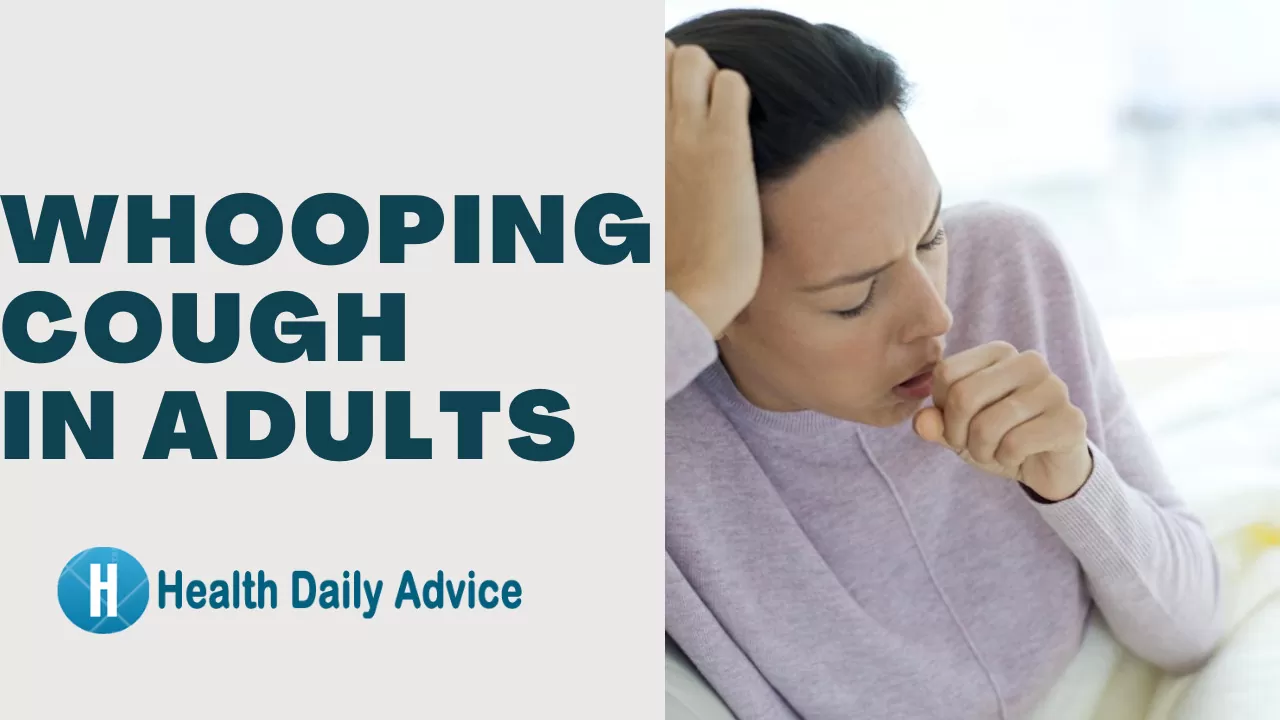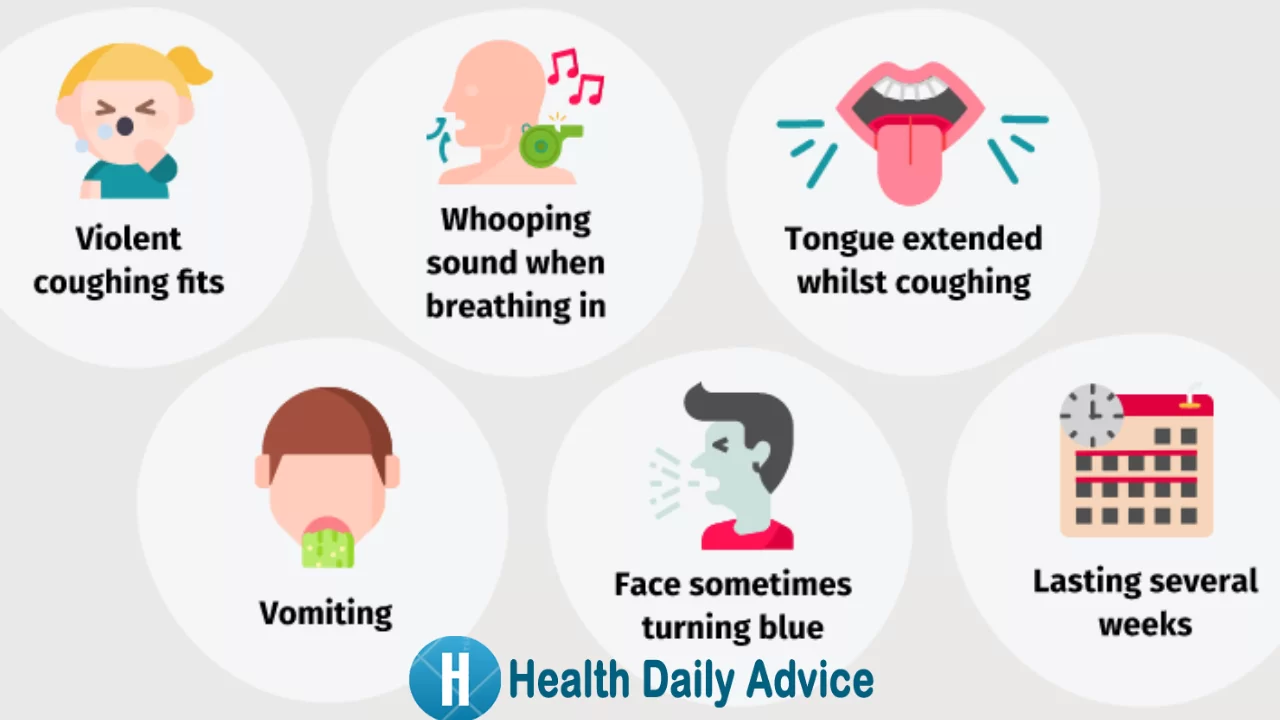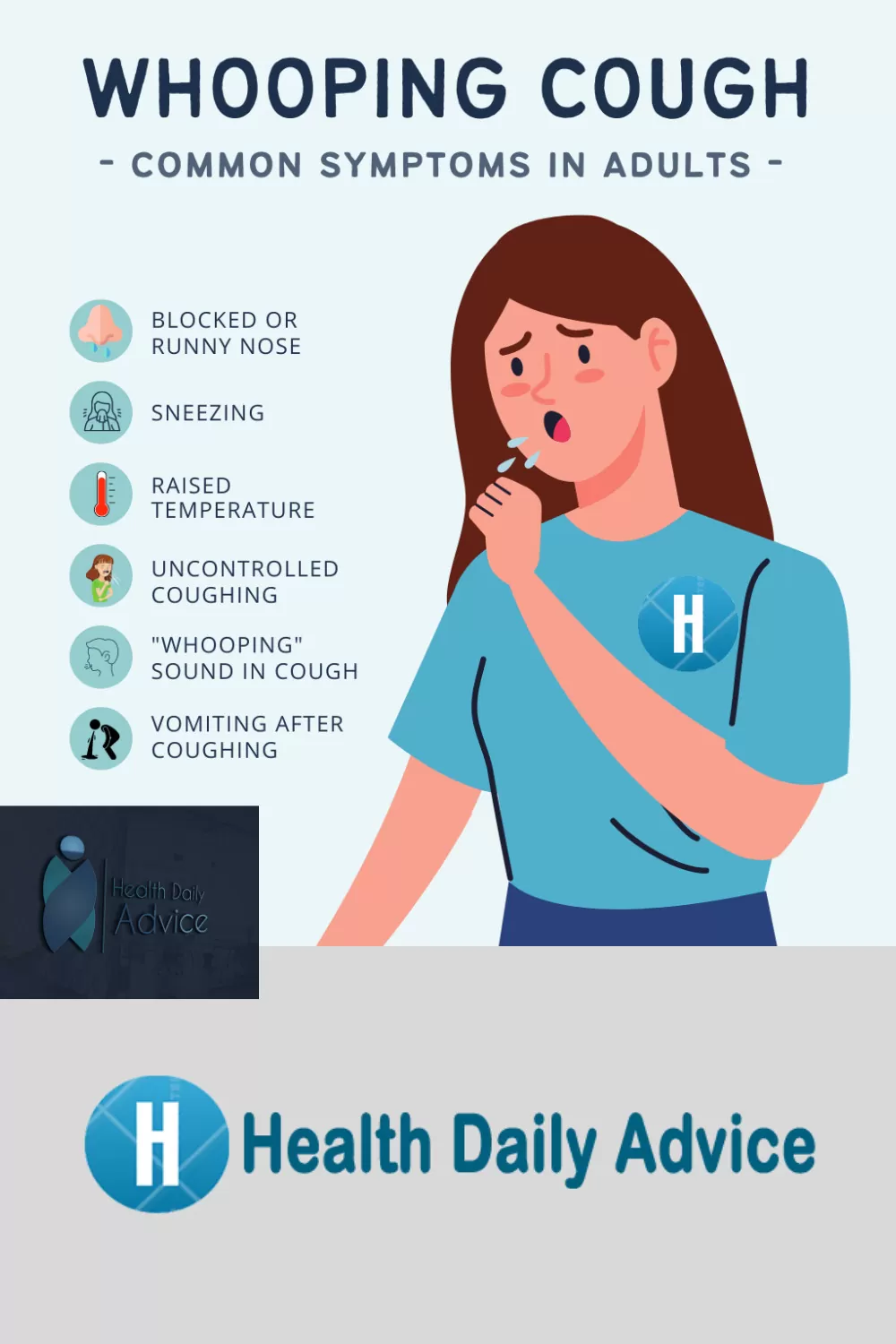Introduction
Whooping cough, scientifically known as pertussis, is a highly contagious bacterial infection capable of affecting individuals across all age groups. Often perceived as a childhood ailment, it is crucial to recognize that adults can also fall prey to this infection. In this comprehensive guide, we will delve into the causes, symptoms, and various treatments available for whooping cough in adults.
What is whooping cough?
Whooping cough is a highly contagious bacterial infection that affects the respiratory system. It is caused by the bacteria Bordetella pertussis, and it is most commonly known for its distinctive “whoop” sound that occurs during coughing fits.

How is whooping cough spread?
The contagious nature of whooping cough is facilitated through respiratory droplets, primarily expelled during coughing or sneezing. Additionally, it can spread through contact with contaminated surfaces, underscoring the importance of maintaining proper hygiene.
Who is at risk for whooping cough?
Although whooping cough is most commonly associated with children, adults can also be at risk. Adults who have not been vaccinated or have not received a booster shot in a while are more susceptible to the disease.
Causes of Whooping Cough in Adults
Adults can get whooping cough through contact with an infected person. It can also be spread through exposure to contaminated surfaces. The bacteria can survive on surfaces for several hours and can infect individuals who touch these surfaces and then touch their mouth, nose, or eyes.
Symptoms of Whooping Cough in Adults
The symptoms of whooping cough in adults can be similar to those of a common cold or flu. They can include:
- Runny or stuffy nose
- Sneezing
- Mild cough
- Low-grade fever
As the infection advances:
- Intense coughing fits that may end with a “whoop” sound as the person tries to catch their breath
- Vomiting during or after coughing fits
- Exhaustion or fatigue
- Difficulty breathing or turning blue
Complications of Whooping Cough in Adults
Complications from whooping cough are more common in adults than in children. Some of the complications that can occur include:
- Pneumonia
- Weight loss
- Urinary incontinence
- Rib fractures
- Passing out due to lack of oxygen
Diagnosis of Whooping Cough in Adults
Whooping cough can be difficult to diagnose, especially in its early stages when symptoms are similar to those of a cold or flu. A doctor may take a swab of the nose or throat and send it for laboratory testing. Blood tests may also be done to check for the presence of antibodies to the pertussis bacteria.
Treatment of Whooping Cough in Adults
The treatment of whooping cough in adults involves a combination of antibiotics, vaccination, and home remedies.
Antibiotics
Antibiotics can be used to treat whooping cough in adults. They can help reduce the severity and duration of the infection. They are most effective when given in the early stages of the infection.
Vaccination
Vaccination is the best way to prevent whooping cough in adults. Adults who have not been vaccinated or who have not had a booster shot in the last ten years should get vaccinated.
Home Remedies
Home remedies can be used to relieve the symptoms of whooping cough in adults. They include:
- Drinking plenty of fluids to stay hydrated
- Using a humidifier to moisten the air
- Resting as much as possible
- Eating small, frequent meals to avoid vomiting during coughing fits
- Using over-the-counter cough suppressants or throat lozenges to soothe the throat
Preventing the Spread of Whooping Cough
To prevent the spread of whooping cough in adults, it is important to:
- Cover the mouth and nose when coughing or sneezing
- Wash hands regularly with soap and water
- Avoid sharing personal items such as towels and utensils
- Stay away from others when sick
When to See a Doctor
It is important to see a doctor if you suspect you have whooping cough. Prompt diagnosis and treatment can help prevent complications. Seek medical attention if you have:
- A persistent cough that lasts for more than two weeks
- Severe or sudden coughing fits
- Difficulty breathing
- Vomiting after coughing fits
- Blue or purplish skin coloration
- Symptoms of pneumonia
Conclusion
Whooping cough is a highly contagious bacterial infection that can affect adults as well as children. It can cause severe coughing fits that can make it difficult to breathe and lead to complications such as pneumonia and weight loss. Prompt diagnosis and treatment can help prevent complications. Vaccination is the best way to prevent whooping cough in adults.
Frequently Asked Questions (FAQs)
Yes, it is possible to get whooping cough more than once. However, getting the vaccine can reduce the risk of getting the disease again.
In rare cases, whooping cough can cause permanent damage, such as brain damage or hearing loss. This is more common in infants and young children.
Whooping cough can remain contagious for several weeks after treatment. It is important to take precautions to prevent the spread of the disease to other
Yes, adults can get whooping cough.
A doctor may take a swab of the nose or throat or do a blood test to diagnose whooping cough in adults.
Yes, antibiotics can be used to treat whooping cough in adults.
Is whooping cough contagious? Yes, whooping cough is highly contagious and can be spread through respiratory droplets or exposure to contaminated surfaces.
Yes, whooping cough is highly contagious and can be spread through respiratory droplets or exposure to contaminated surfaces.
Vaccination is the best way to prevent whooping cough in adults. It is also important to practice good hygiene and avoid contact with infected individuals.
The best way to prevent whooping cough is to get vaccinated. The CDC recommends that adults receive a Tdap vaccine every 10 years. It is also important to take precautions to prevent the spread of the disease, such as washing your hands frequently and covering your mouth when you cough or sneeze.
Note:
So in This Post, Whooping Cough in Adults: Causes, Symptoms, and Treatments other points can you think of/have experienced? Let me know in the comments.
If you found this helpful feel free to share your experience if you can relate to these points and if you are comfortable share
For More Articles Related to the Whooping Cough Stay Tuned To our Site: Health Daily Advice











